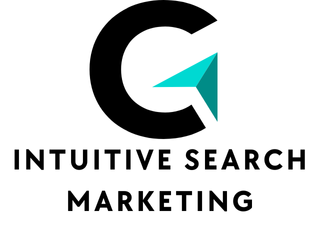Effective change management drives lasting business transformation and competitive advantage. Expert consultancy not only guides organizations through complex transitions but builds the capabilities needed to sustain those improvements. Leveraging proven frameworks and tailored tools, these specialists help companies achieve measurable results and adapt continuously as markets evolve.
Choosing an Effective Change Management Consultancy: What Organisations Need to Know
Selecting a partner in organizational change consulting means prioritizing expertise, relevance of methodologies, and proven track record. After industry scrutiny, only a select few firms earn recognition for their impact, reflected in competitive tiered rankings. Companies searching for business transformation consultancy should focus on providers whose integrated change management advisory services span transformation strategy, leadership coaching, culture shift, and project delivery. For more on methodology and practical details, IMA Worldwide explains it here.
Also to discover : Elevate your organization through professional change management services
Key consulting services for change initiatives include organizational diagnostics, readiness assessments, and leadership alignment strategies—each targeting the unique challenges of managing internal resistance or embedding change sustainably. Leading consultancies use tailored frameworks to support continuous improvement, ensuring transformation’s benefits last. Tools such as change impact analysis, stakeholder management, and culture and change management strategies help organizations evolve in fast-shifting environments.
Evaluating consultancy effectiveness relies on benchmarks that synthesize consultant expertise, innovation in approach, industry reputation, and demonstrated client benefit. These criteria enable organizations to identify partners who elevate business performance and confidently deliver measurable results.
In the same genre : Unlocking the Future of UK Logistics: Proven Strategies for Integrating Autonomous Vehicles
Leading Change Management Methodologies and Firm Profiles
Change management models structure how organizations transition, emphasizing adaptability, clear roles, practical frameworks, and measurable results. Consultants rely on specialized organizational change models and frameworks to assess readiness, manage resistance, and embed new behaviors.
Proprietary Frameworks and Methodologies: From Results36® to AIM
Bain & Company’s Results36® stands out, using structured processes and specialized tools, like the Change Power Index® and Results Delivery® Office. These resources address core challenges, from clarifying leadership roles to aligning operations and technology, increasing the probability of achieving and maintaining transformation goals. IMA Worldwide leverages the Accelerating Implementation Methodology (AIM), focusing on execution, sponsor alignment, and practical behavior change to convert awareness into adoption through both consulting and training.
Profiles of Major and Boutique Consultancies: Bain, Change Associates, IMA Worldwide
Large and boutique consultancies—Bain, Change Associates, IMA Worldwide—blend global reach with tailored support. Bain’s comprehensive suite supports transformation across industries. Change Associates specializes in aligning leadership, culture, and structure, offering insights on hybrid work and HR technology. IMA Worldwide’s AIM suits digital, Agile, and operational changes, offering organizational diagnostics and change leadership coaching.
Tools, Case Studies, and Practical Approaches
Consultancies employ diagnostic tools and research-informed tactics for measuring change impact and success. Case studies illustrate practical results, from IT to government. Each firm integrates people, process, and technology, developing change agents and ensuring transformation sticks.
Maximising Organisational Outcomes Through Consultancy Expertise
Assessing impact and sustaining results: KPIs, diagnostics, and readiness assessments
The effectiveness of change management is determined using objective measures. Experts apply key performance indicators (KPIs), diagnostic tools, and readiness assessments to quantify progress and identify gaps. Precision is prioritized, with metrics tailored to specific transformation goals—whether improving efficiency, boosting employee engagement, or achieving cost reductions. Consultants use these findings to create data-driven strategies, ensuring that progress can be tracked at each stage. Readiness assessments help organizations evaluate whether their teams, systems, and leadership are prepared for change, reducing the risk of failed initiatives.
Overcoming challenges: change communication planning, managing resistance, and ensuring leadership alignment
Transparent and consistent communication keeps employees informed and invested. Consultants develop change communication plans to clarify intentions, address concerns, and minimize confusion. Resistance is inevitable; advisory services provide practical approaches to understanding its root causes and managing obstacles. Leadership alignment is continuously shaped through coaching and workshops, unifying executives and frontline managers around shared objectives.
Long-term benefits: capability building, continuous improvement, and real-world success stories
Capability-building strategies embed change deep within the organization. Ongoing training, coaching, and feedback loops foster continuous improvement. Success stories from diverse industries reveal how consultancy expertise has enabled sustainable transformation and tangible performance gains.










